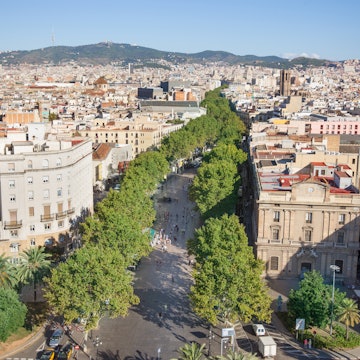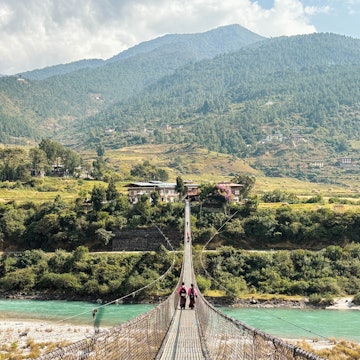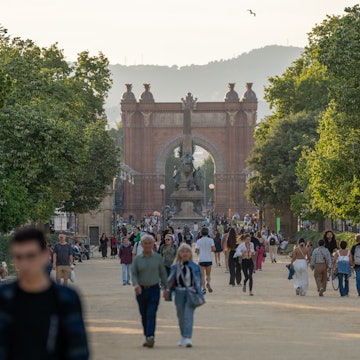
Pay to play: The latest destinations charging visitor fees in 2023

Feb 22, 2023 • 4 min read

Thailand is introducing a small visitor tax in 2023 © Getty Images
Visitors heading to Thailand will have to pay a small entry fee from June, it has been confirmed.
Whether exploring Thailand's vibrant cities or relaxing on its picture-perfect beaches, you'll have to pay extra this year - but not by much.
The government has been given the go-ahead to apply an entry fee of up to 300 baht to all international visitors, regardless of where they're coming from. Those who arrive by air will be charged 300 baht (about $9), which will be added to airline ticket prices. While those who arrive by bus, train, or boat will have to pay an additional 150 baht ($4) for their fare.

According to Thailand's tourism ministry, the revenue generated from the fee will be used to fund the sustainable management of Thailand's tourism resources and cover accident insurance for tourists who can't afford it.
"We've encountered times when insurance didn't have coverage for tourists, which became our burden to take care of them," the country's tourism minister, Yuthasak Supasorn, told Reuters when the entry fee was proposed last year.
Cannabis is now legal in Thailand, but it's complicated: what travelers need to know
The entry fee is a one-off charge and only applies to people who are staying overnight in the country. It does not apply to those in transit, children under two, or anyone traveling on diplomatic passports or work permits.
With mass tourism on the rise, taxes like this are becoming increasingly common. In 2019, New Zealand started charging visitors NZ $35 (roughly $22) to enter, while two years later Japan introduced a "sayonara tax" that requires tourists to pay 1,000 yen ($7) when leaving the country.
Most countries, particularly in Europe, generally collect tourist taxes via accommodation providers or holiday booking companies and the revenue collected is put towards the provision of services. Prices are usually marginal, but this year, several destinations are increasing existing levies as the cost of living crisis continues to bite.
Here's where you can expect to pay extra this year.

Spain
Starting in 2023, if you're visiting Valencia, you'll pay a tourist tax ranging from 50 cents to €2 per night (depending on your accommodation). The tax is payable to the hotel, B&B, or rental you're staying at. It applies to the region of Valencia, not just the city. That means that if you're visiting the popular holiday destinations of Alicante, Benidorm, and Costa Blanca resorts, you'll also see the cost of your trip increase.
Meanwhile, anyone heading to Barcelona for vacation will pay extra when they stay in the city as the local government increases its tourist tax for 2023. The tax is payable by anyone staying overnight for the first seven consecutive days - you could stay seven nights or a month and pay the same fee. Currently, guests pay €4 per night to stay in rented accommodation in the city, but that will rise to €5 this year.
Italy
Venice, like most Italian cities, already charges a city tax for overnight guests that varies in price depending on the type of accommodation and the time of year you visit. But this year, in a bid to tackle overtourism, the floating city is set to charge day-trippers, who are currently exempt from these fees, a visitor entry fee that will vary according to how busy the season is. The high entry cost during peak season aims to reduce the influx of visitors at busy times.
That means if you're visiting Venice on a quick pit-stop without staying overnight, you'll have to book to enter the city and pay a fee that could be as low as €3 in the off-season and as high as €10 during summer, Easter and festival days. An exact start date for introducing the fee has yet to be announced, but it will likely be trialed this summer.

Bhutan
Those fees are mere blips compared to Bhutan's astronomical tourist fees. The country revamped its tourism model in September, scrapping its daily fee of US$200-250 for an all-inclusive package in favor of a new Sustainable Development Fee of US$200 - with extra costs for food, accommodation, transport, and everything else that used to be part of the package.
3 major changes shaking up travel for Americans in 2023
European Union
Starting in November, if you're a non-EU resident and you're not required to get a special visa to enter Europe on a short-term stay, you'll need to register through the European Travel Information and Authorization System or ETIAS. It's an electronic visa waiver that's essentially the EU's version of the USA'S Electronic System for Travel Authorization (ESTA) and applies to people from countries such as the US, the UK, Canada, Australia, and more. Applying for the ETIAS costs about €7 per person.






















